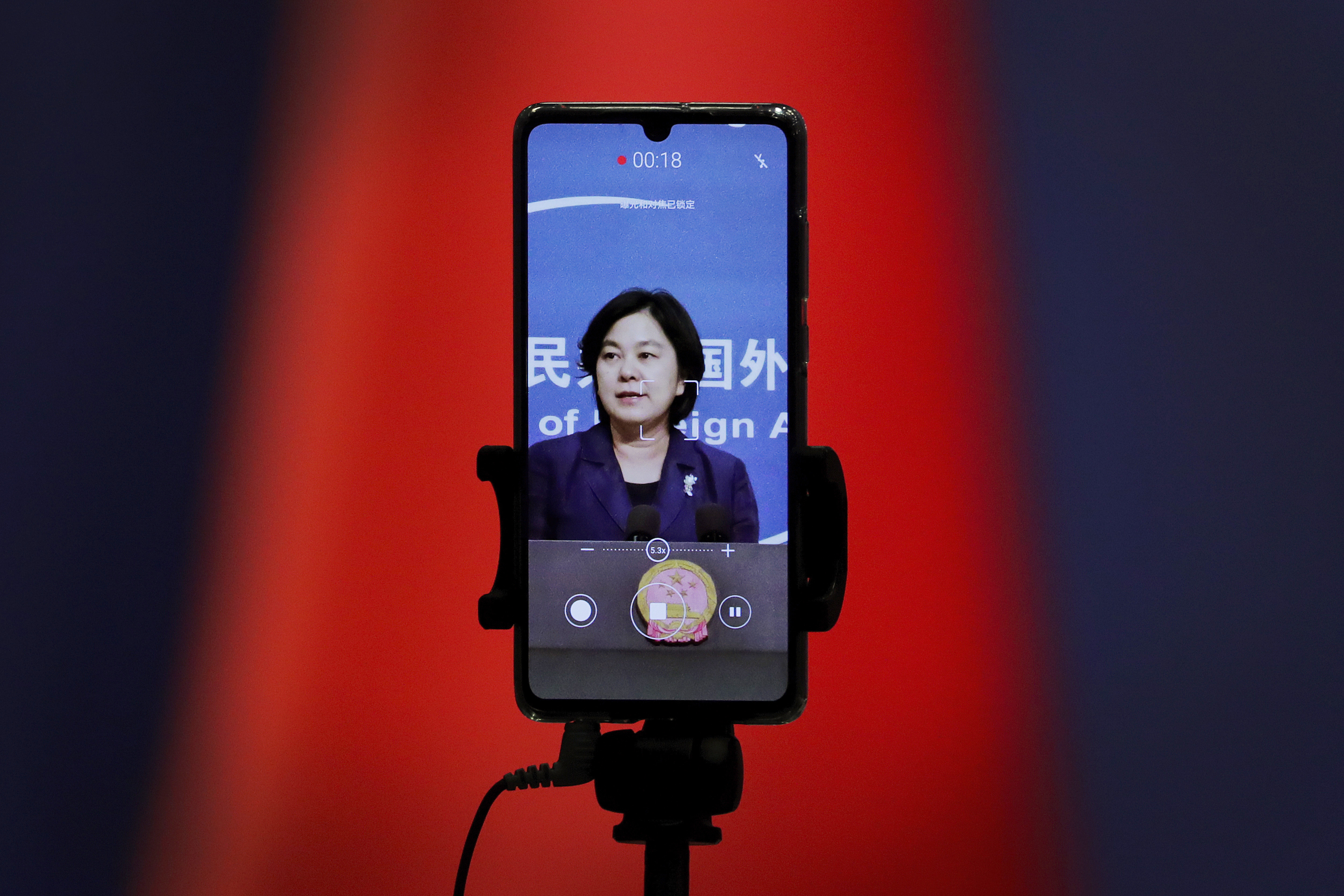Chinese diplomats are now claiming to be fact-checkers
By: Summer Chen and Huian Ho
The article was originally published by International Fact-Checking Network on May 27, 2020
The famous “wolf warriors” — an action-hero term used for Chinese diplomats as they aggressively defend their country in the COVID-19 outbreak — have developed a new battle tactic. They are now claiming to be fact-checkers.
Since April, in response to the flood of international criticism against China, Chinese embassies in several countries, the Chinese Foreign Ministry and the state-backed media have been publishing what they call fact-checks.
In late April, the Chinese embassy in Germany published “Sixteen myths and truths of China during the COVID-19 pandemic” on its website and Twitter account. The article looked like a standard fact-check, listing the claims (myths), the ratings (all “false”), and an explanation with links to the sources, including highly reputable scientific journals and the World Health Organization.
“Many uncertainties have crept into the discussion about the origin and spread of the SARS-CoV-2. (…) China is particularly affected by this infodemic,” said the preface. “Thus, we compile sixteen most common rumors, debunking them with scientific knowledge and facts.”

In Malaysia, the Chinese embassy has been posting as “the Rumor buster” on its official Facebook page. The latest post appeared on May 2, highlighting that the city of Wuhan is where the first COVID-19 case was reported, but not where the new coronavirus originated. This post generated more than 10,000 comments, although many of them seemed sarcastic.
 The Chinese embassy in Cape Verde, an African island country, posted a 12-point fact-check in Portuguese a few days ago. All of the fact-checks released by the different embassies offer the same information.
The Chinese embassy in Cape Verde, an African island country, posted a 12-point fact-check in Portuguese a few days ago. All of the fact-checks released by the different embassies offer the same information.
On May 9, the Foreign Ministry of China, which oversees all the embassies, posted a lengthy 24-point rebuttal on its website. The 11,000-word article, titled “Reality Check of US Allegations Against China on COVID-19,” originated from China’s most prominent state-backed media, Xinhua news agency.
State-backed media in China — including Xinhua, People’s Daily, Global Times and China News — all simultaneously published “fact-checks” and hoax-debunking infographics. Xinhua also published the Lego-character cartoon video ”Once Upon a Virus” to rebut U.S. claims. Several embassies shared the video on their websites and social media.
This “fact-check,” issued by the Foreign Ministry of China, argues against popular claims. These include the virus’s origin, mismanagement of the outbreak, information concealment, and the recent disputes over China’s overseas assistance and its worldwide propaganda campaign.
In the article, the ministry attempts to reshape China’s arrest of Dr. Li Wenliang, who tried to warn his colleagues about the virus in Wuhan and later died of COVID-19. The ministry claimed Li was not a “whistle-blower,” and said Dr. Li was not arrested but reprimanded by the local police.
Chunying Hua, the Foreign Ministry’s spokesperson, posted a set of “24 lies and facts” cards on Twitter. Although Facebook, Twitter and YouTube are banned in China, Chinese diplomats and state-owned media are proactively telling China’s story on those platforms.
Puma Shen, assistant professor of the graduate school of criminology at National Taipei University and also one of the directors at the Doublethink Lab, an organization focused on strengthening democracy, pointed out that Chinese diplomats’ “fact-checks” are aimed at readers outside of China.
“Since China is not able to control the narratives on foreign social media platforms, it is seeking a way out by using fact-checks to mislead the international audience,” Shen said.
The professor warned that the misuse of the fact-check format might mislead audiences and even become a tool to promote bad actors’ narratives.
* Summer Chen and Huian Ho are editor-in-chief and reporter at the Taiwan FactCheck Center.
Image: AP Photo/Andy Wong






